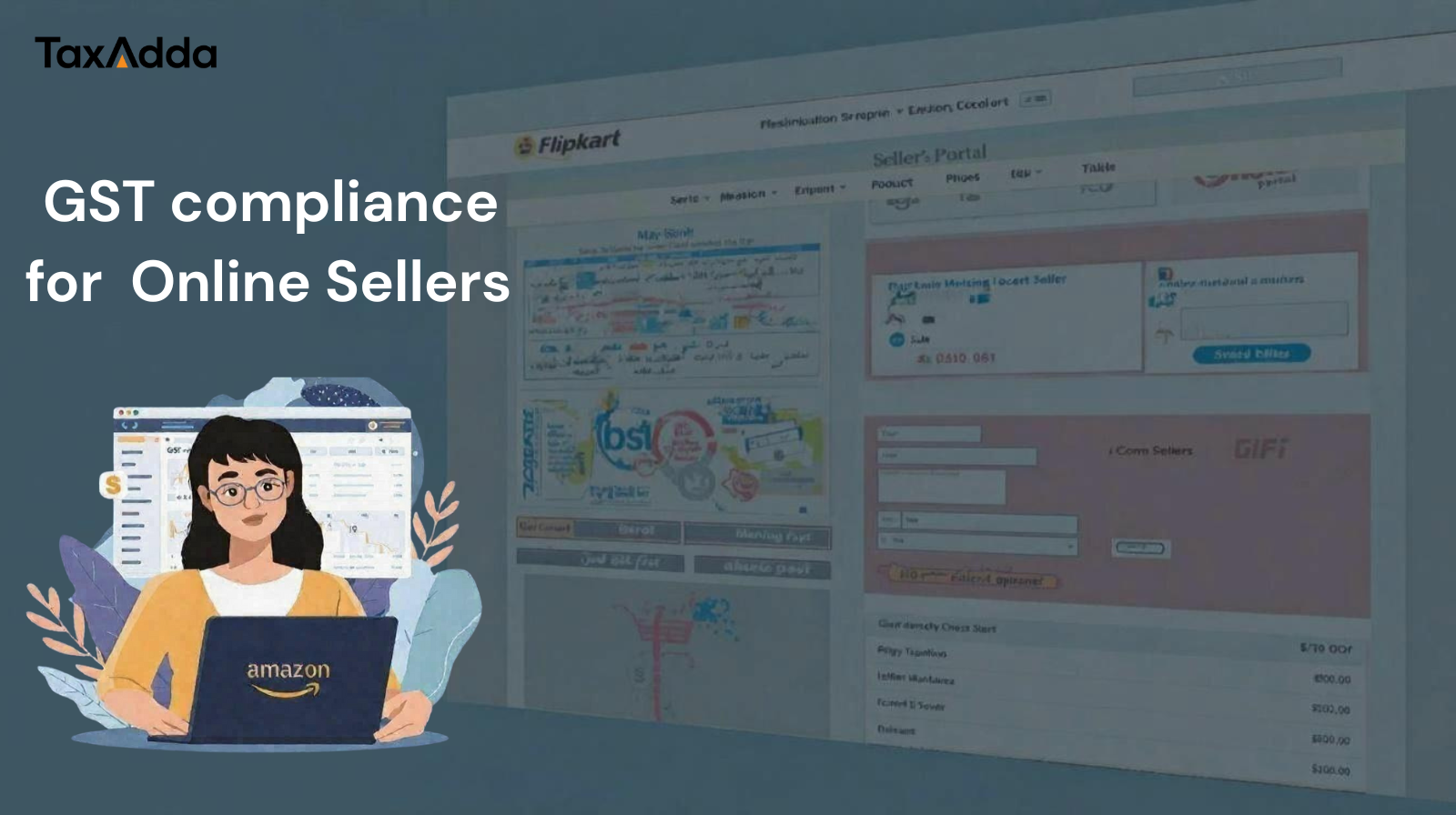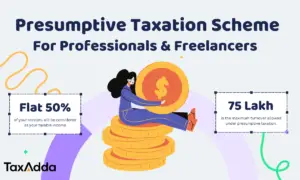Selling goods on platforms like Amazon, Flipkart, Meesho and other e-commerce marketplaces may look easy. However, GST compliance often becomes a major challenge for sellers, leading to confusion, notices, blocked input tax credit and cash-flow stress.
This article is written entirely from a seller’s perspective, focusing on real-world issues, common compliance errors and practical solutions.
GST rules are different for persons who provides services via platform like urbanclap or provide food via swiggy or cab service via uber/ola. Check this guide if you sell your services on any of these platforms.
Also See – Amazon, Flipkart and other Online Platforms Profit and GST Calculator
Registration under GST
Under section 24(ix) of the CGST Act, anyone making taxable supplies through an e‑commerce operator (ECO) like Amazon, Flipkart or Meesho must register, even if turnover is below the normal Rs.40 lakh (goods) / Rs.20 lakh (special category states) limit.
In Simple terms, every person who wants to sell goods on any of these platforms has to register under GST and get a GSTIN. Limit of Rs. 40/20/10 lakh do not apply on selling online. These platforms also do not allow to register without a GSTIN.
Exception : Meesho allows sellers without GSTIN to register using an enrolment ID/UIN, provided they sell only within the same state and their total turnover (on Meesho plus otherwise) remains below the basic threshold limit.
Once turnover crosses Rs.40 lakh (Rs.20 lakh for special category states) or the seller starts inter‑state supplies, GST registration becomes compulsory and the Meesho account must be converted to a GST seller profile.
If you sell only exempted goods then you may register on these platforms without GST.
There is no special type of registration required for selling online. A person who already has GSTIN need not take another registration. There is also not any requirement for intimation/notice/change in registration.
But such person has to take registration under normal scheme. Composition scheme registered persons are not allowed to sell online.
While taking registration and reading anywhere about online selling keep in mind that persons selling through these website are NOT e-commerce operators. Amazon, flipkart etc are e-commerce operator and not the persons selling on them. So any rules relating to e-commerce operator doesn’t apply to you. Also, do not select e-commerce operator at time of filing registration form, otherwise you can get into major problems.
You can also take GST registration service of TaxAdda.
GST Returns
GST returns provisions for online sellers are same as that of offline sellers. You have to file GSTR-1, GSTR-3B for every month or quarter, based upon your selection in QRMP preference. You may also required to file invoice furnishing facility (IFF) if you are filing returns on quarterly basis. Check our page on GST returns to know more about GST returns.
An important point to note here is that GST returns are to be filed from the registration month even if there is no transactions at all. In other words, NIL return are also required to be filed, otherwise penalty is payable.
TaxAdda specializes in providing GST return services to online sellers. Check our service page to know more about it.
Who has to pay GST?
One general questions each new seller ask is that who is liable to pay GST? Amazon or the seller who is selling on it. The answer is that the seller is liable to pay GST on sales made.
The concept is that the seller is selling directly to the buyer. Amazon is only like a commission agent in between. So the seller is liable to pay GST and not amazon.
GST calculation method is given later in this article.
Commission and its input
The online platform charges a percentage of the sale price as commission from the seller. The percentage depend on the platform and also on the category of goods.
The platform has to charge GST @ 18% on such commission and the seller can take input tax credit of such GST.
Platform may also issue credit notes for the commission or other charges. GST on such credit note is to be deducted from the invoice’s GST to arrive at the input tax credit that can be claimed.
Platform also issues invoices for delivery charges, advertisement charges and other charges. Input credit can be claimed for all such expenses.
Invoicing to Customer
As discussed above, seller is selling the product directly to customer. Therefore, the seller has to issue GST invoice to customer with details like GSTIN, Customer name, address, product details, quantity price, GST amount etc.
Although customer has to issue invoice directly to client, almost all big platforms give facility to generate invoice from their platform. The seller is just required to print the invoice and send it with the product.
TCS and How to claim it
Amazon, flipkart is required to deduct TCS at rate of 0.5% of total sale price from the amount payable to you. This rate was 1% till 09 July 2024 then changed to 0.5% from 10 July 2024. This TCS can be claimed as input tax credit by online sellers. Such TCS is shown in the TCS statement, it is required to match the sales shown in this statement with actual sales and accept the TCS. Then the TCS amount gets added to the cash ledger of the person, which can be used to pay the GST liability.
You can sell online without GST only if you sell goods which are exempted. If you sell goods on which GST is applicable, then you has to get GST number to be able to sell online. You has to take GSTIN even if turnover is less than Rs. 20 lakh.
No, there is no special registration to sell online. If you are already registered, then you can provide that same GSTIN in amazon, flipkart etc.
Amazon and PayTm gives option to buyer to add his GSTIN. But Flipkart doesn’t give such option. GSTIN is compulsorily required to be mentioned in invoices to enable buyers to take input tax credit of GST.
The amount payable by e-commerce operator is equal to sales amount less commission less packing and delivery charges less TCS less ad charges (if any) less godown storage charges (if any).
GST payable is equal to GST on sale of goods less all input tax credit available. The common input tax credit available is GST paid on purchase of goods, on commission invoices, on advert invoices, on delivery invoices etc. Examples are provided in the our Guide to GST for Online Sellers.


